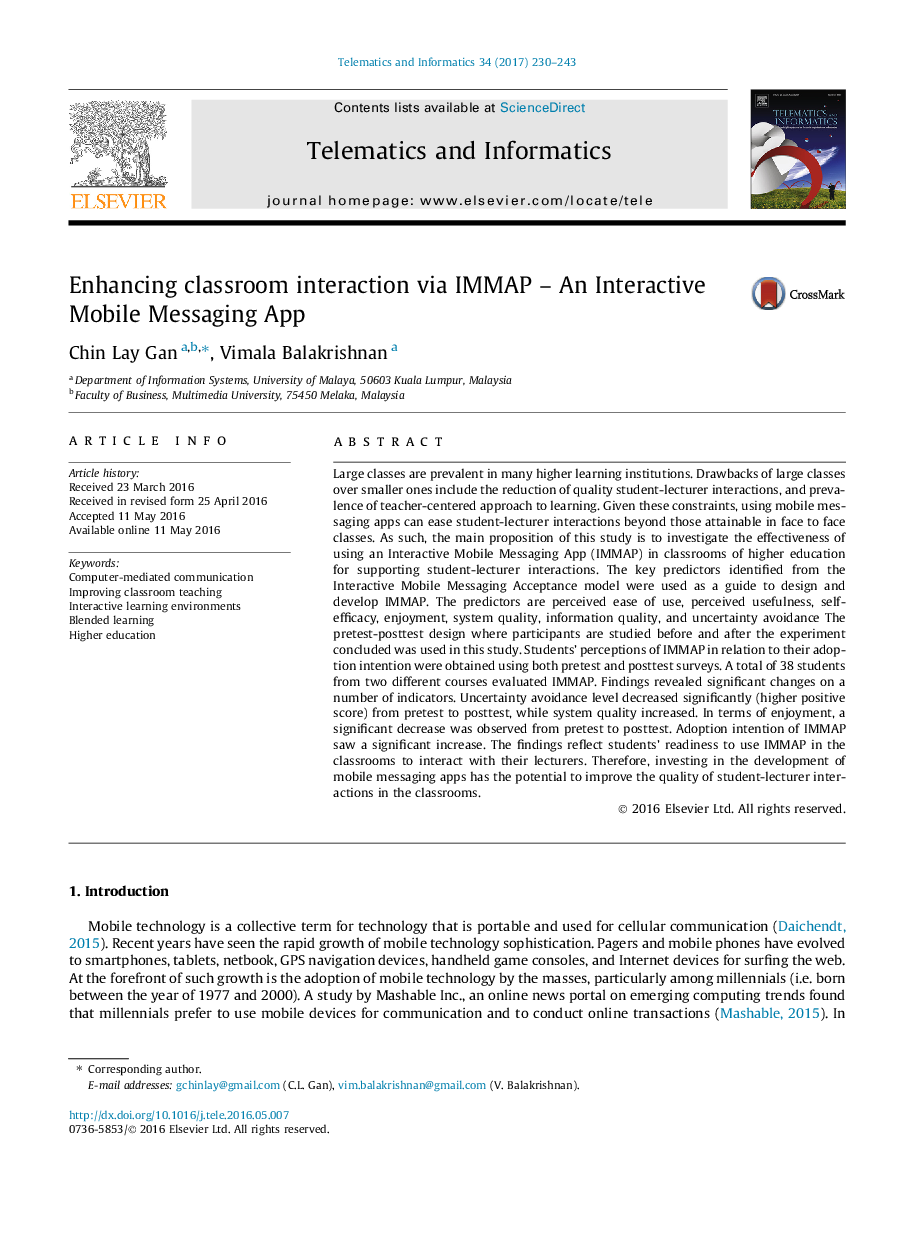| Article ID | Journal | Published Year | Pages | File Type |
|---|---|---|---|---|
| 466923 | Telematics and Informatics | 2017 | 14 Pages |
•Student-lecturer interactions enhanced using Interactive Mobile Messaging App (IMMAP).•Developed based on the Interactive Mobile Messaging Acceptance model.•Pretest and posttest surveys distributed to 38 tertiary students.•Lower uncertainty avoidance and enjoyment after using IMMAP.•Improvements for system quality and adoption intention after using IMMAP.
Large classes are prevalent in many higher learning institutions. Drawbacks of large classes over smaller ones include the reduction of quality student-lecturer interactions, and prevalence of teacher-centered approach to learning. Given these constraints, using mobile messaging apps can ease student-lecturer interactions beyond those attainable in face to face classes. As such, the main proposition of this study is to investigate the effectiveness of using an Interactive Mobile Messaging App (IMMAP) in classrooms of higher education for supporting student-lecturer interactions. The key predictors identified from the Interactive Mobile Messaging Acceptance model were used as a guide to design and develop IMMAP. The predictors are perceived ease of use, perceived usefulness, self-efficacy, enjoyment, system quality, information quality, and uncertainty avoidance The pretest-posttest design where participants are studied before and after the experiment concluded was used in this study. Students’ perceptions of IMMAP in relation to their adoption intention were obtained using both pretest and posttest surveys. A total of 38 students from two different courses evaluated IMMAP. Findings revealed significant changes on a number of indicators. Uncertainty avoidance level decreased significantly (higher positive score) from pretest to posttest, while system quality increased. In terms of enjoyment, a significant decrease was observed from pretest to posttest. Adoption intention of IMMAP saw a significant increase. The findings reflect students’ readiness to use IMMAP in the classrooms to interact with their lecturers. Therefore, investing in the development of mobile messaging apps has the potential to improve the quality of student-lecturer interactions in the classrooms.
